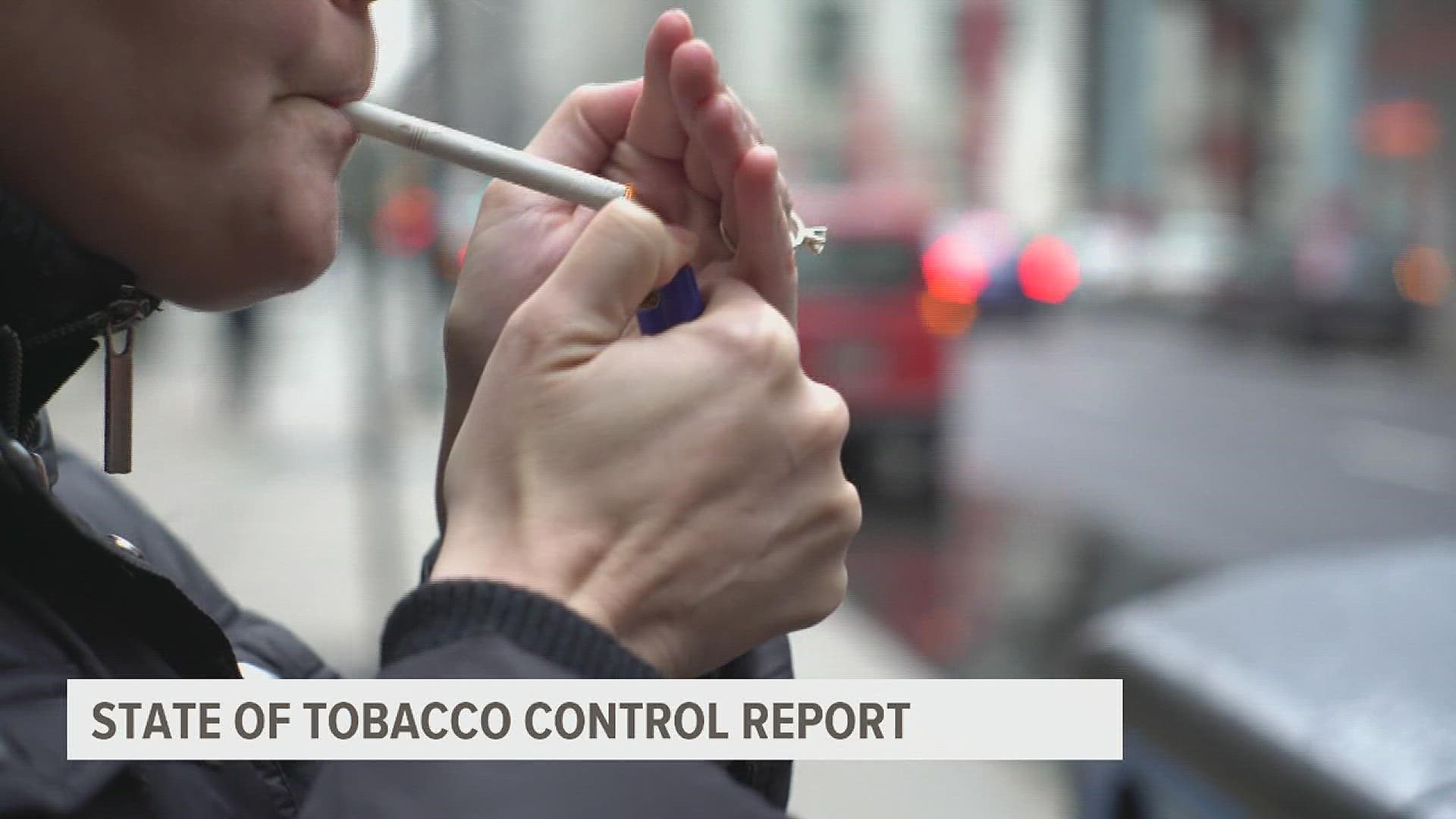YORK, Pa. — Every year, the American Lung Association releases its annual "State of Tobacco Control" report.
The goal is to provide information on how states and the federal government can reduce tobacco use and exposure to second-hand smoke. Think of it as a report card, if you will, with states graded on their efforts to reduce and prevent tobacco use.
This year, Pennsylvania didn't do so well, to say the least, according to Molly Pisciottano, the director of advocacy for the American Lung Association.
"The one passing grade was for smoke-free workplace laws," she said. "It's not a great passing grade, we received a D, so that just shows we have a lot more work to do."
The latest report grades states in five areas:
- funding for state tobacco prevention programs
- strength of smoke-free workplace laws
- level of state tobacco taxes
- coverage and access to services to quit
- ending the sale of all flavored tobacco products
Pennsylvania's report showed that while some progress has been made in the Commonwealth, tobacco use remains the leading cause of preventable death and disease, killing more than 22,000 people a year.
Since launching the annual report in 2003, the country overall has made tremendous progress in its efforts to prevent and reduce tobacco use.
"That percentage decreased from 21.6% down to 14% in 2019, so that's overall a 35% decline," Pisciottano said.
However, she says there's still much work to be done. As we enter into the third year of the COVID-19 pandemic, there's more of a focus on lung health now than ever before.
"It's important to remember that smoking can cause more severe effects on someone who contracts COVID-19," Pisciottano said. Pisciottano says that this fact makes the annual report even more vital than prior years.
"It really outlines the importance of policies that need to take place or be strengthened in order to save lives with proven effective tobacco control laws," she said.
Pisciottano says the best thing you can do to help is contact your legislators to urge them to do more. She says you can urge them to allocate more state funding to tobacco prevention and to close the loopholes in Pennsylvania's Clean Indoor Air Act to make all public places and workplaces smoke-free.
Check out the full report from the American Lung Association here.

